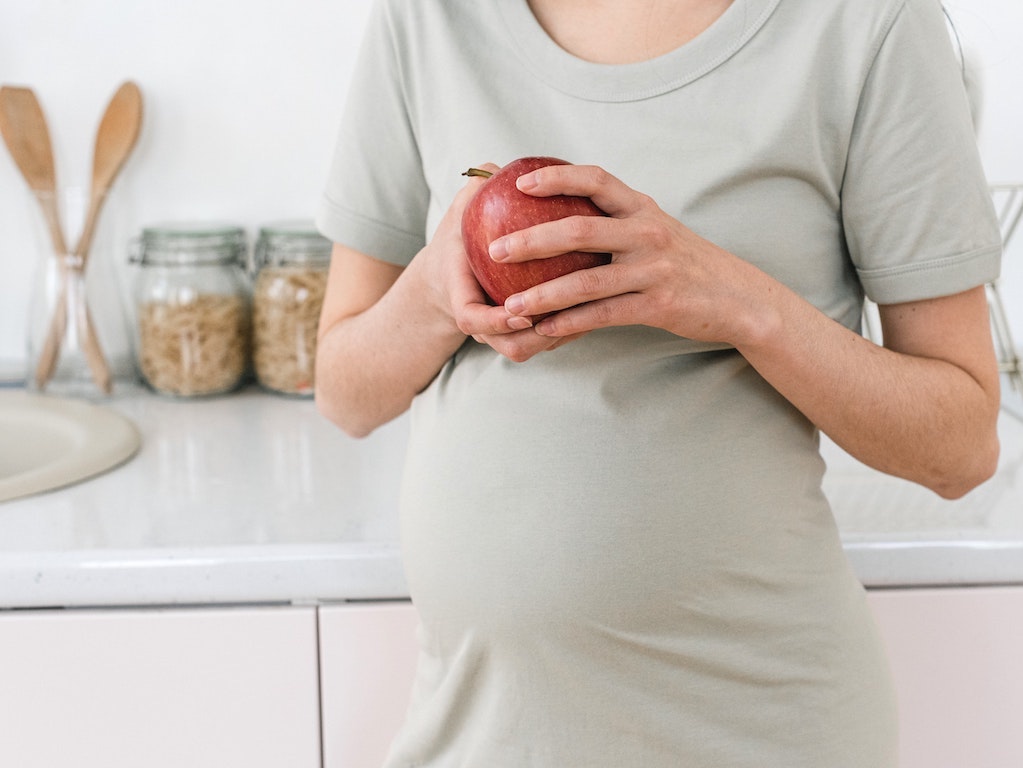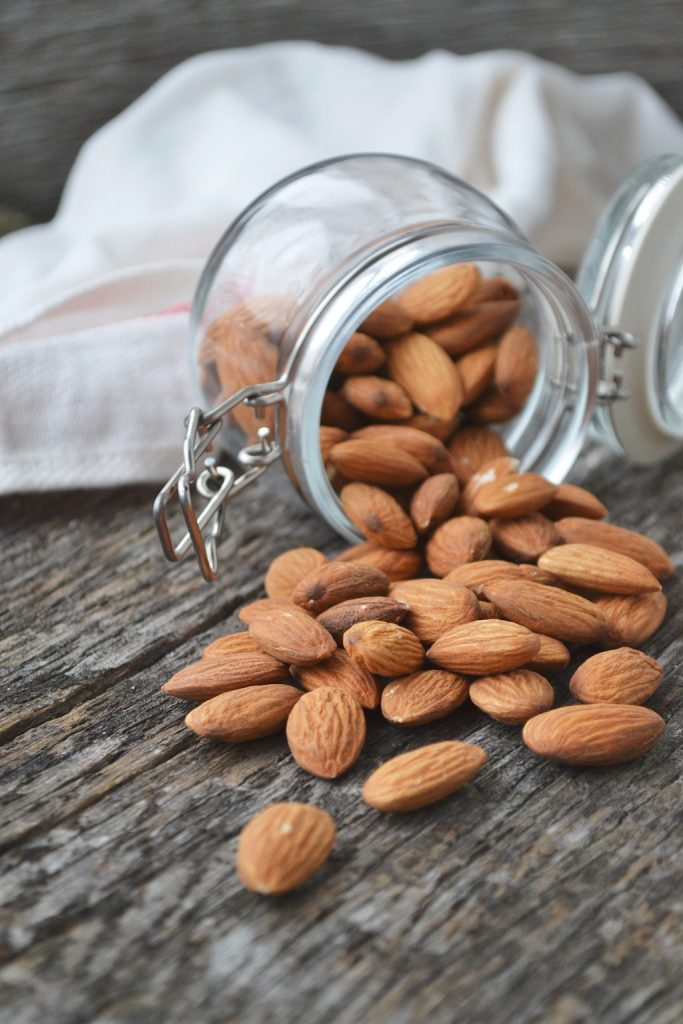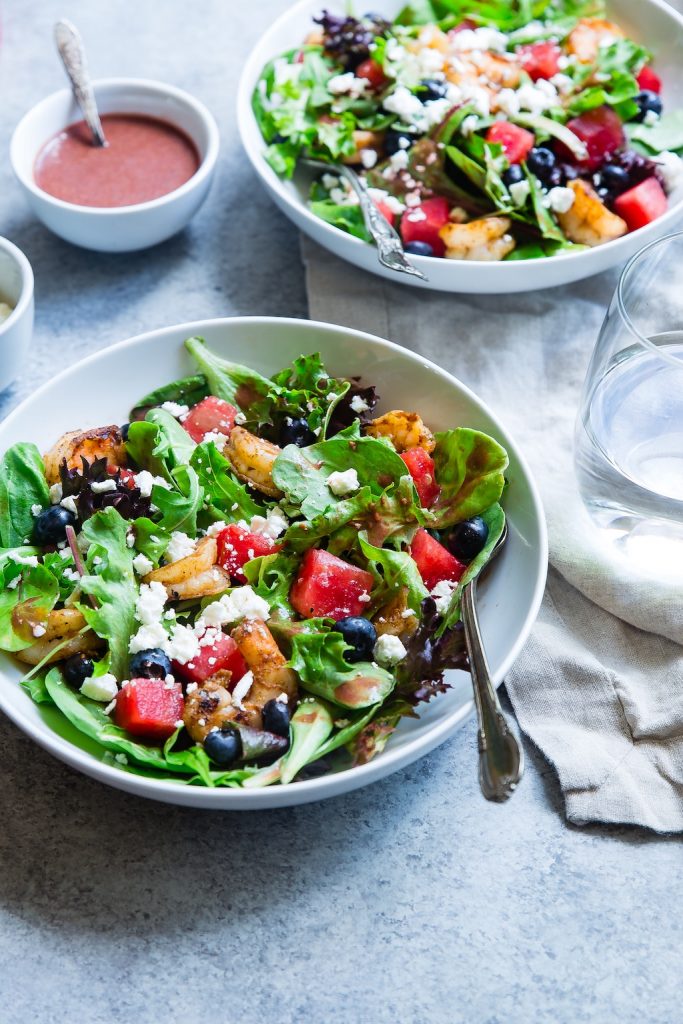SingaporeMotherhood | Pregnancy
September 2022
Top 12 Foods to Eat for the Best Nutrition during Pregnancy

The common adage during pregnancy is that you can, and should “eat for two”. That, we now know, is a misconception. Pregnancy nutrition does not mean eating more. A pregnant mother only requires 2,200 calories per day during the first trimester, and an additional 300 calories per day from the second trimester onwards. “Eating for two simply means eating 15 to 20 per cent more than usual. It is not eating double,” Jaclyn Reutens, a dietitian at Aptima Nutrition & Sports Consultants confirms.
It might be easier if you visualise this. That’s half to one bowl of rice, one palm-sized piece of meat, and one cup of vegetables — for the whole day, not per meal. Since it is easy to reach this “quota”, what is important is to choose foods that will fulfil your pregnancy nutrition needs. Ms Reutens tells us more below. Read on to learn the top 12 foods she recommends for pregnant mums as well.
(See also: Hospital Maternity Package options in Singapore (2022 update) for Pregnant mums-to-be)
Why do pregnant women need to watch what they eat?
Among other factors such as genetics and exercise, pregnancy nutrition plays an important role in the growth and development of the baby. The foetus relies on the mother’s food choices to grow, and the mum-to-be’s health is largely dependent on what she eats. Furthermore, risks of pre-eclampsia and gestational diabetes can be reduced with a nutritionally balanced diet.
If a mum-to-be feels hungry even after full meals, should she eat more?

It depends on why she is hungry. If the hunger is within three hours of the meal, she should reflect on the nutritional content of the meal, and ascertain if she ate enough carbohydrates, protein and fibre. Eating too little of each nutrient can trigger hunger pangs. If so, be sure not to under-eat the next time, as snacking can give rise to unnecessary weight gain.
Being dehydrated can also give the same sensation of hunger. Drink one to two cups of water first before looking for food. If the mother gets full easily and has consumed a small meal, nutritious snacks such as nuts, seeds, and yoghurt can help.
What are the healthiest local foods that a pregnant mum can eat?
A pregnant woman’s diet should have a steady supply of energy, lean protein, fibre, iron, folic acid, calcium, zinc and the essential vitamins. Local foods that can provide these nutrients include stir-fried or steamed vegetables, steamed fish, white and brown rice, soupy noodles, thosai, idlis, naan, lightly cooked meats and chicken, home-made soups with low levels of salt, steamed buns, eggs, daal, chickpeas, steamed silken tofu, fresh fruits, tau huay, fish or chicken porridge, and sliced fish soups.
(See also: Pregnancy Exercise to do for Easier Labour and Delivery)
How about the unhealthiest?
Foods that contain high levels of fat, especially saturated fat, foods that are highly sweetened, and very salty foods should be limited. These increase the risk of excessive weight gain, pre-eclampsia, gestational diabetes, and increased fatigue. While they do not need to be excluded entirely from her diet, the following foods should be consumed occasionally and in sensible amounts:
- Deep-fried foods such as curry puffs, fried chicken, goreng pisang and you tiao
- Foods using coconut milk such as curries or rendang
- Desserts using coconut milk like bubor cha cha or chendol
- Desserts that are heavily sweetened or buttery such as ice cream, cakes, pastries and tarts
- Sweetened drinks such as bubble tea, drinks with syrup or condensed milk
- Salty foods such as preserved treats, Taiwan sausages and luncheon meats
Are coffee and alcohol safe for pregnant women?
No alcohol is allowed for the entire duration of the pregnancy. This is to prevent the risk of foetal alcohol syndrome, which can harm the growth and development of the foetus’ brain and vital organs.
Pregnant women can drink up to 200mg of caffeine a day. Depending on the strength of the coffee, this is equivalent to one to two cups a day. If you can avoid or reduce the amount of coffee you consume, you should choose to do so. Do note that caffeine is also found in other foods such as chocolate, as well as some teas.
Is there anything that she should avoid?
Raw fish, fish high in mercury (shark, swordfish), undercooked meats, unpasteurised eggs, unpasteurised dairy, and shellfish like clams and mussels. Foods that have been left out too long should be avoided as well. These increase the risk of food poisoning.
(See also: 9 Must-haves to Reduce Stretch Marks while Soothing and Pampering your Pregnant Belly)
Top 12 foods Mums-to-be should consume for optimum Pregnancy Nutrition
Sweet potato
High in beta-carotene, promoting the growth of healthy cells and tissues in the foetus. Also high in soluble fibre that can help prevent or alleviate constipation.
Bran
High in soluble and insoluble fibre to improve gut health and bowel movements. Can also help with regulating appetite.
Dry toast
Helps with morning sickness and is a good source of carbohydrates.
Eggs
Excellent source of choline, a vital nutrient that helps with healthy brain and spine development in the baby.
(See also: 11 Best Breast Pumps for Breastfeeding Mums in Singapore)

Dark green leafy vegetables (e.g. spinach, kale)
Contains good amounts of folate, vitamin C, vitamin K, potassium, and fibre which are essential vitamins and minerals to promote overall healthy growth and development for the foetus, and keep the mother healthy.
Lean meat (pork and beef)
Rich in iron to meet the increased requirements of red blood cells production to carry oxygen to the foetus. Also high in good quality protein for cell renewal.
Salmon
High in omega-3 fatty acids to aid brain and eye development in the baby.
Dairy (milk, cheese, yoghurt)
Excellent source of high-quality protein and calcium to promote optimal development of bone, teeth, muscles, and nerves.
Lentils
Rich in soluble fibre, protein and B vitamins, including folate, to promote good gut health, prevent neural tube defects. Also an excellent source of protein for vegetarians.

(See also: 12 Confinement Food Delivery Caterers in Singapore)
Wholegrain cereals (brown rice, quinoa, oats)
Good source of low-glycemic index carbohydrates that give a sustained release of energy, controls appetite and high in prebiotics to encourage a healthy gut. Also rich in potassium, fibre and B vitamins.
Oranges and citrus fruits
High in vitamin C and fibre. Vitamin C is needed for collagen formation for the foetus’ ligaments, tendons, and skin. It also boosts the immune system of the mother and increases the absorption of iron.
Avocado
Great source of good fats, folate and vitamins A and E. Keeps the mother fuller longer and great for skin health.
Keeping up with Pregnancy Nutrition
With myriad food options available in Singapore, whether for dining in, out, or from supermarkets and online fresh food deliveries, it is easy for mums-to-be to ensure that they, and their babies-to-be, are well fed throughout the nine months of gestation and beyond.
Featured image: SHVETS production
All content from this article, including images, cannot be reproduced without credits or written permission from SingaporeMotherhood.
Follow us on Facebook, Instagram, and Telegram for the latest article and promotion updates.





